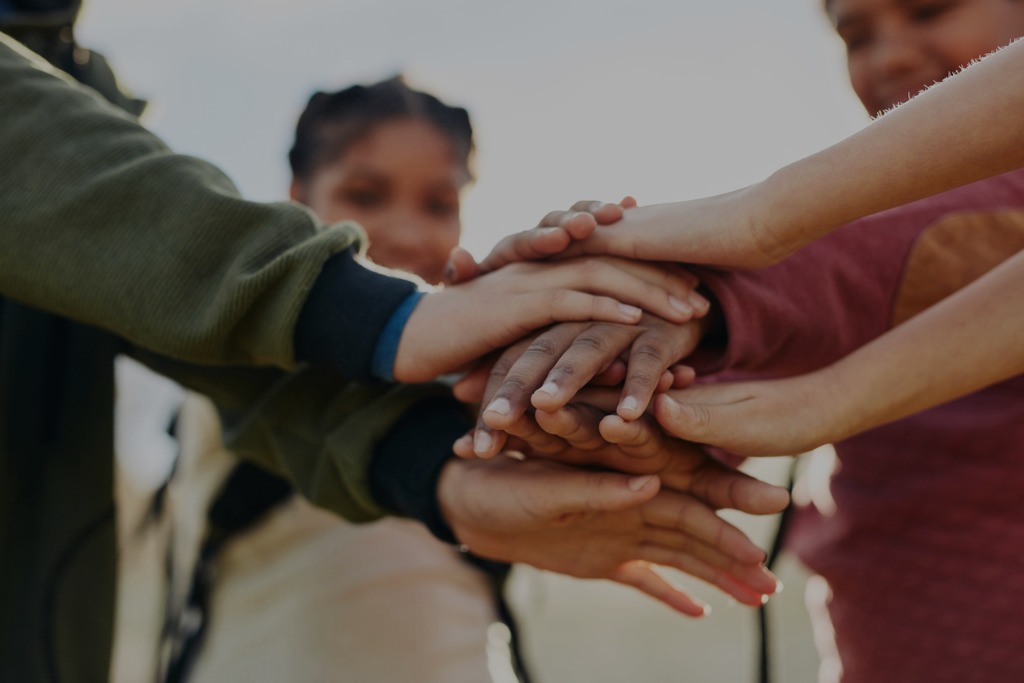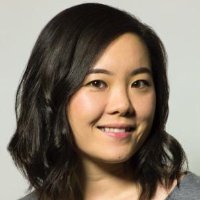Right now, speaking about anything other than the systemic racism we are witnessing feels harmful.
Lindsy Ogawa, Director of Practice and Field Advancement
I thrive behind the scenes. Finding ways to connect and amplify the voices of learner-centered leaders who are working to build a better world every day—that is what brings me joy.
The impact of learner-centered education, you (the leaders driving the work), and your communities are so much bigger than me or our Education Reimagined team. I’m in awe of your leadership and the work you are shepherding across the country.
Yet, right now, speaking about anything other than the systemic racism we are witnessing feels harmful.
Learning about the murder of George Floyd was heartbreaking. And, knowing that George is only one of the countless Black and Brown people who have been murdered by people and a system that promises to protect them is maddening.
Calls to “say their names”—George Floyd, Breonna Taylor, David McAtee, Michael Lorenzo Dean—have been one of many pleas from communities across the country for all of us to acknowledge the justified anger and frustration of millions who have to live in a society where their rights to safety, justice, and equitable opportunities for success are not guaranteed due to the color of their skin.
There is so much to discuss about what’s going on and what has led up to this particular moment. There is so much to consider about what we can do as individual human beings and as a nation. There is so much to unpack regarding why this injustice has been allowed to persist for centuries.
As I discuss, consider, and unpack, I’m gaining a new sense of clarity in what it means to be anti-racist. And, like a muscle in training, I’m eager to increase my own capacity to play a part in dismantling racism.
As an Asian American (and as someone who doesn’t identify as white but is often told I’m not a person of color), I’ve avoided discussions about racism by hiding behind my racial invisibility. I, like many Asians and Asian Americans, have focused on questioning where and whether my voice belongs, rather than choosing to stand in solidarity with the Black community. I’m realizing my focus doesn’t have to be on one or the other.
I stand with Black Lives Matter and stand with those who’ve been fighting for safety, justice, and equitable access. I’m committed to a society where Black, Brown, and Indigenous people can live safe and fulfilling lives. Remaining silent from fear of saying or doing the wrong thing will never get us there—racism flourishes in silence. Silence will no longer be the way I choose to participate.
What Education Reimagined means by a socially just, learner-centered education
Racism is embedded in every system we encounter on a daily basis; its poison oozes into every nook and cranny. Education is no different. Choosing to take on systemic racism alone can seem so overwhelming. But, by first taking a stand against racism—then doing the internal work of generously listening to those who don’t share the privileges you have—you can begin moving closer and closer to a socially just world.
In the context of education, this means creating a learner-centered system that has social justice as its centerpiece, and is available for every child of every race and culture, in every zip code.
One person, organization, or racial group can’t do this work alone. So, I turn to you—an educator, a learner, a parent, and/or anyone who has experienced a one-size-fits-all education—to examine the ways our current education system perpetuates racial inequity (and other inequities). And, I encourage you to invite others to do the same.
When we talk about learner-centered education, we are talking about an education that enables young people to develop their own self-knowledge, agency, and an awareness of their intersectional identities. We are talking about developing multicultural competence—understanding different worldviews and historical and current contexts. We are talking about developing communities of healing and belonging with honest, relevant, and often difficult but liberating dialogue. We are talking about unpacking our own biases and privileges, and how they prevent us from fully understanding each other.
We are talking about an education that supports young people in discovering their full humanity and the unique contributions they can make to create a safe and better world together.
I agree when learner-centered leaders say that young people will change the world; I also believe that young people deserve the safety, trust, and bravery of supportive adults and a system that is designed for them to do so.
Sometimes we just have to face the hard stuff straight on
As the academic year comes to a close, let’s take the time to pause and reflect. Be sure to acknowledge what you have done well, and make time to confront and address misalignments between what you are committed to and reality. We must choose to hold ourselves and each other accountable to be anti-racist—taking action to root out racism in all we do—every single day.
What about the world are your young people wanting to change? What mindsets or opinions have they developed or let go of? What kinds of conversations have they had about race and identity (even your youngest learners)? What new opportunities or perspectives have they been introduced to? What skills have they gained to listen, communicate, and navigate complex situations? What have your young people discovered about their own power?
What have you discovered about yourself these past few months? What privileges and biases do you and your colleagues have? What have you done to illuminate and free up blind spots you, a colleague, or a young person hold? What kind of listening did you offer when someone freed you from yours? What difficult conversations have you had or avoided having (because they were difficult)? What internal work can you do or external training and support could you seek out to understand and grow your capacity to build bridges where there is division? Who are the allies and leaders in your community to learn from and bring in?
As you explore these kinds of questions, I will be exploring them as well in the context of my work at Education Reimagined and my personal life. And, I would love to have these conversations with you.
We all have a role to play in dismantling racism, and educators have a particularly important one. Educators have direct influence to inform the worldview of members in our society, starting from their childhoods. Bringing to the forefront the truth of our history and how that continues to impact us today must be a part of the work within and beyond the classroom. In the last few months, so much of conventional education’s focus has been within the context of the COVID-19 pandemic, and important but narrow questions have surfaced about how we go back in the fall—often hoping for a return to “normal.”
But, “normal” has never meant equitable.
We need to imagine and act upon visions for education that align with the world we and our communities want to live in. How will your stand to dismantle systemic racism within education (and society-at-large) be clearly present in the vision you pursue? How will you use the recent events to shift your lens as an educator and your role moving forward? What voices will you make sure are not only present but given the space to co-lead in that vision’s creation?
The time to answer these questions is now.

